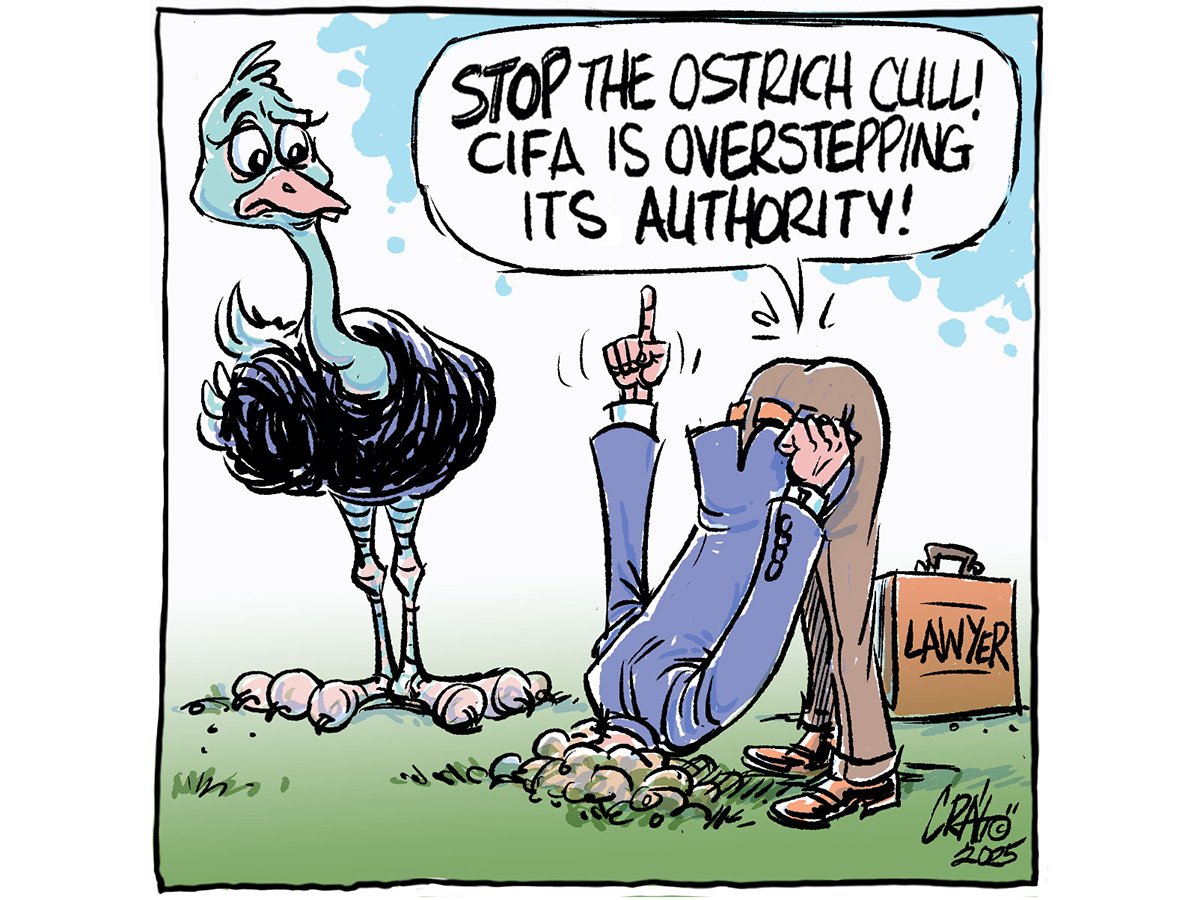Former NHL star Dennis Hull became a highly paid after-dinner speaker when his years of glory in Chicago ended. He would regularly bring the house down with this tale: after hockey, he returned to southern Ontario where he set up a business that combined a veterinary clinic and a taxidermy shop.
The motto was: Either way, you get your dog back. Har har.
Think of the dog as the Canadian Wheat Board. No matter who wins the next election, you get the wheat board back but in an altered form.
Read Also

The Canadian Food Inspection Agency’s animal health efforts require producer support
Livestock producers should be concerned by how an ostrich farm is using crowd funding to help it defy a Canadian Food Inspection Agency order to destroy more than 300 birds.
The Liberal wheat board dog might still retain its monopoly marketing power if domestic politics rule but the Liberals have exposed the board monopoly to international trade negotiations, where the monopoly is far from popular.
It is difficult to imagine the wheat board monopoly surviving World Trade Organization negotiations intact.
Even if it does and the Liberals win the next election, there clearly will be changes to the way the board governs itself and how its elections are conducted.
Minister responsible Reg Alcock loves to dabble in governance changes and is prone to mucking around in process. He thinks the wheat board is well run but ….
The “but” offers the likelihood of change should the Liberals be re-elected and Alcock re-appointed. For the board as it now exists, that is the best scenario.
A Conservative government would perform less delicate surgery on the CWB dog.
The Conservatives believe the wheat board monopoly must end. They would make it happen.
Board supporters insist that because of the results of consecutive wheat board elections in which pro-monopoly candidates win, the majority of farmers support the board. Proposals for change should keep that in mind.
Monopoly opponents note that most of the farmers with permit books and the ability to vote in the election are small enough that they are happy to have the monopoly do their marketing and they do not rely on wheat sales for their livelihood.
Besides, most wheat board farmers since 1993 have voted for Reform/Alliance/Conservative candidates with an end-of-monopoly agenda so how important can this issue be to them?
It is certain that a Conservative government would heed those arguments.
Conservative CWB critic David Anderson insists the party does not want to destroy the wheat board. Instead it wants to keep it as an option but allow choice as well “to protect farmers on both sides.”
Evidence from jurisdictions that have tried dual marketing suggests it really means open marketing.
No matter. All the political evidence available now suggests the next Parliament will feature another minority government.
If it is Conservative and if it tries to end the CWB monopoly, it will face opposition from the Liberals, New Democrats and the pro-central desk selling Bloc QuŽbecois.
So whichever party wins the next election, CWB change proposals are in the cards.
Whether they make it through the divided House of Commons is as uncertain as whether the current billion-dollar-a-week pre-election vote-buying spree by Paul Martin can secure the desperate Liberals and their free-spending New Democrat-like finance minister Ralph Goodale another few months in office.














